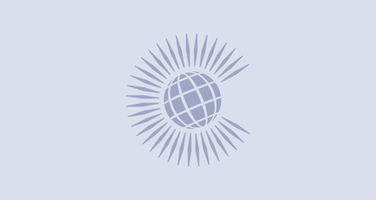Paraschos Cant from Cyprus, was the Senior Winner of The Queen’s Commonwealth Essay Competition 2015. Aged 15, He wrote an open letter to world leaders expressing his hope for the future. Paraschos joins an esteemed list of winners that have gone on to become authors, journalists, academics and Prime Ministers.

In 2015, the theme for the competition was ‘A Young Commonwealth’, in recognition of the contribution and potential of the 60% of the Commonwealth that is under the age of 30. Sponsored by Cambridge University Press, thousands of young people from across the Commonwealth took part.
Paraschos Cant from Cyprus, the Senior Winner of the Competition, wrote an open letter to world leaders expressing his hope for the future. Paraschos joins an esteemed list of winners that have gone on to become authors, journalists, academics and Prime Ministers.
To: The Honourable Leaders of the World.
Dear Leader,
I hope that I find you well and that all the people you represent, old and young, are happy.
If they are not all happy, I hope that they are well. If they are not well, I hope that they are getting better. If they are not getting better, I hope that they have hope.
I have hope.
Of course, I’m sure that you must have a more developed sense of hope than I do - after all, you have the experience to understand the pressures, politics, economics and religions of your country far better than me and so can guide them in the best way possible to provide the most happiness, health and hope to your people.
Being just a youth myself, what I think that means is that you probably just think like I do – but in a more grown up way that gets more done, better.
But I thought I should check because I’m led to believe that I and people of my age might be a little naïve and so in your journey through the challenges of responsibility, growing up, coming to power and developing all your experience – you may already have forgotten more than youngsters like me think we know yet.
Perhaps the best way to see if we share the same outlook is to compare your country to my classroom; I apologise for the simplicity of the comparison but I have very little experience of much else.
In my ‘country’, we have many different nationalities and a couple of different religions. Some of my classmates (I mean ‘fellow citizens’) are richer than others; others are brighter than some and some are more athletic than others. Our differences all make us the same because everyone is different, which I think makes it an interesting class (sorry, ‘nation’).
We all sit on the same sort of chairs and on the same sort of desks and the teachers teach us the same things and we are all working towards the same exams – so as much as we are different, we are all treated the same. I suppose that must be the way it works in the grown up world too, with everyone equal and working towards the same goals with the same opportunities? I hope so.
Sometimes there are limited resources in a class, even the best school can only have so many teaching aids, test tubes and text books, so we have to huddle around and share things so that everyone gets an equal chance to learn. This can be quite good fun because it means that my friends and I get to do things together. That must be the same way you share things out? I hope so.
Occasionally, we do have to team up against each other though – on sports days. We all take turns to be captain of the team and then choose teammates in turn. This means that teams are not always the same and sometimes I don’t get my very best friends on my side – but that’s alright because they are still my friends after the game and we can congratulate each other more warmly when the other achieves something. Is that the same fair way that adults team up and praise each other? I hope so.
Of course, I am not always nice to all my friends every day. From time to time, I will admit that I might have a down day or be frustrated by something. The good thing is that my friends rally round and help me see what I’ve done wrong either by a kind word to me or by supporting the person I have wronged. We end up friends again quite quickly, I mean, what’s more important than your friends? I guess you feel the same? I hope so.
I want to be an astronaut or perhaps a computer-programmer or maybe an adventurer or an entrepreneur or a humanitarian or someone like that and loads of my friends do too. It’s brilliant because we all believe we can be or do something really fantastic and nobody ever tells us that we can’t, they just suggest we find ways that we can. I might even grow to become a leader like you that tries to help everyone become as good and successful as they can be. That is what you do? I hope so.
We have recently started to learn more about history, politics and current affairs at school (well, we are getting older and more experienced). Perhaps there is something that you could kindly help me understand, before I forget it’s important?
The thing is: if countries are like my classroom and are populated by a youth like ours who hope what we hope and so who are as naïve as you think we must be - when is it that we will learn enough experience to understand how to spot our differences, guard our opportunities, separate our wealth, battle our opponents and control our aspirations?
I might try to miss that lesson. I hope so.
Yours faithfully,
Paraschos Cant



